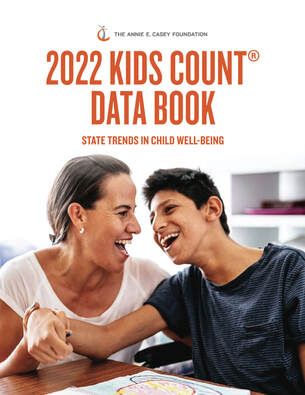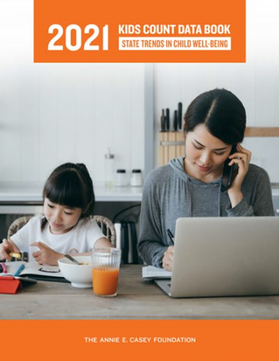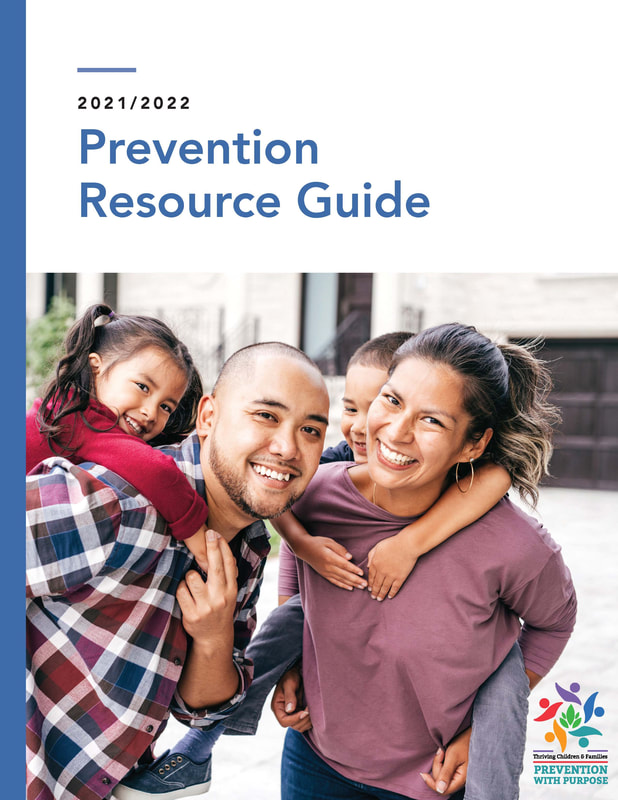|
The 2023/2024 Prevention Resource Guide recognizes that there are actions we can take as a society and within communities, organizations, and families to address the root causes of child abuse and neglect. The prevention resource guide seeks to highlight the innovative ways that communities around the country are doing purposeful prevention work to help children and families thrive. The protective factors have always been central to the Resource Guide. A protective factors approach focuses on positive ways to engage families by emphasizing their strengths, in addition to identifying areas where they have room to grow with support. Focusing on protective factors helps children, youth, and families build resilience and contributes to positive outcomes.
Download from the Child Welfare Information Gateway. Order a print copy from Child Welfare Information Gateway.
0 Comments
Louisiana Children's Trust Fund is pleased to announce that the 2023-2024 LCTF Grant Application Process is open. For more than 39 years the Louisiana Children’s Trust Fund has worked to prevent child abuse and neglect among Louisiana’s children and families through building strong cross-sector partnerships and increased child safety and public awareness. It is our constant goal to support community based efforts to develop, operate, expand, enhance and coordinate initiatives and programs geared toward the prevention of child abuse and neglect.
The 2023-2024 Grant Application will be COMPLETELY ONLINE! For more information, click here. Grant proposals must be submitted before Monday, February 24, 2023 noon (CST). No applications that are submitted late will be accepted or reviewed.  The 33rd edition of the Annie E. Casey Foundation's KIDS COUNT® Data Book describes how children in America are in the midst of a mental health crisis, struggling with anxiety and depression at unprecedented levels. This year’s publication continues to present national and state data across four domains — economic well-being, education, health and family and community — and ranks states in overall child well-being. The report includes pre-pandemic figures as well as more recent statistics, and shares the latest information of its kind available. AMERICAN KIDS AND MENTAL HEALTH The coronavirus pandemic has brought children trauma and tremendous loss over the past two and a half years. As of July 2022, the health crisis had killed more than 1 million people in America, including more than 1,600 children. During this same time span, more than 200,000 kids had lost a parent or primary caregiver to the virus. These conditions have helped fuel what the U.S. surgeon general has called a mental health pandemic for youth. According to the Data Book, the incidence of anxiety and depression among kids has spiked. Comparing pre-pandemic to the first year of the COVID-19 crisis: The share of children struggling to make it through the day rose nearly 26% — from 9.4% (5.8 million kids) in 2016 to 11.8% (7.3 million kids) in 2020. This pandemic within a pandemic has also laid bare persistent disparities. Across the United States, 9% of all high schoolers attempted suicide in the years before the most recent federal survey. This rate rises to 12% for Black students, 13% for students of two or more races and 26% for American Indian or Alaska Native high schoolers. Among LGBTQ youth, the statistics are similarly lopsided, with 23% of gay, lesbian or bisexual high schoolers reporting to have attempted suicide compared to just 6% of their heterosexual peers. RACIAL INEQUITIES IN CHILD WELL-BEINGThe 2022 KIDS COUNT Data Book continues to identify racial and ethnic disparities that persist in America today. Some examples of these findings include:
RECOMMENDATIONS FOR CHANGEEarly research indicates that addressing youth mental health needs can reduce or even eliminate pandemic-related stress. Accordingly, the Foundation calls on lawmakers to enact the programs and policies needed to ease mental health burdens on children and their families. They recommend:
Download PDF or go to website for this and other related reports.  The 32nd edition of the Annie E. Casey Foundation's KIDS COUNT Data Book describes how children across the United States were faring before — and during — the coronavirus pandemic. This year’s publication continues to deliver the Foundation’s annual state rankings and the latest available data on child well-being. It identifies multi-year trends — comparing statistics from 2010 to 2019. In addition, the report shares data on how families endured the pandemic, sharing data from the Census Bureau's Household Pulse Survey. Access the report. The 2021 KIDS COUNT® Data Book offers a national look at the well-being of America's children and families by exploring how states are performing on key data indicators. For advocates, journalists and policymakers, our collection of national and state media-focused resources offer important insights provided by the data and the expertise of the Foundation and its KIDS COUNT Network. Click to review the press release about Louisiana's report data. The 2021/2022 Child abuse and neglect Prevention Guide has been released!
|

 RSS Feed
RSS Feed